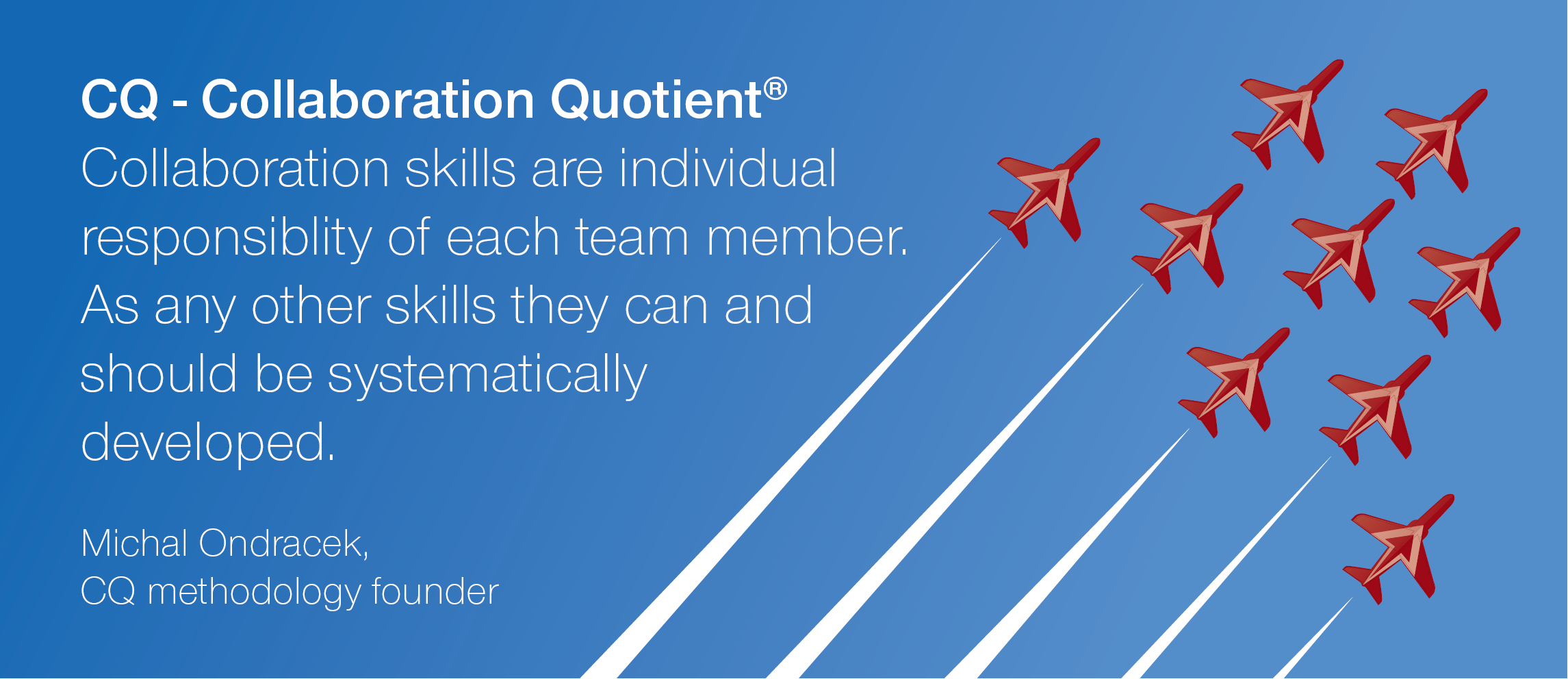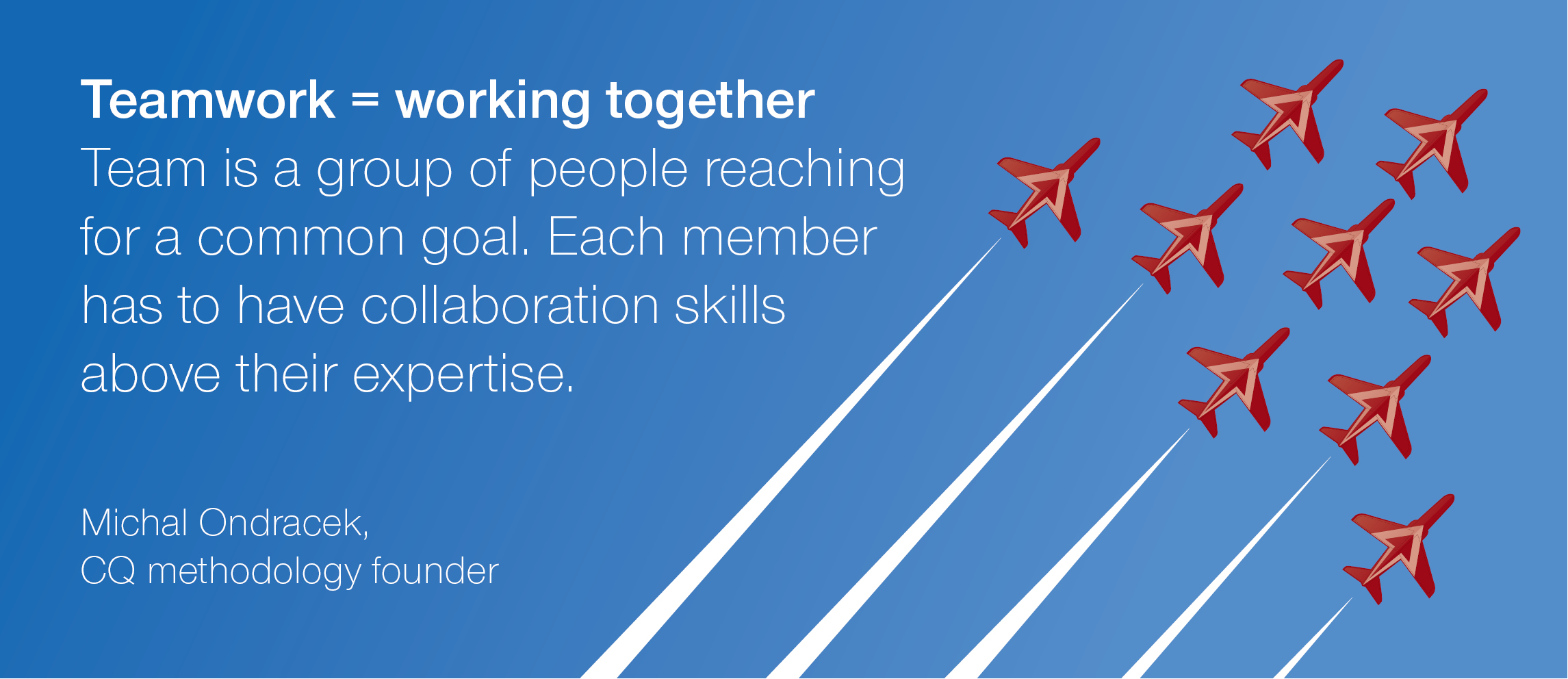Welcome to the CQcentre website. Here you can find information about the latest trends in team collaboration, team collaboration qualification and CQ-Collaboration Quotient.
Let´s start with a short story:
A company decided to improve collaboration both on the departmental and inter-departmental levels. Their solution was simple; Let´s send everybody on a teambuilding event, where they can appreciate the importance of collaboration, get to know one another better and have some fun. Let´s combine it with regular off-site meetings and communicate the importance of collaboration throughout the company. Let´s also use personal typology, measure the inter-personal and inter-departmental contact intensity and add the “collaboration” criterion into the evaluation system. But after a few years and a lot of money spent, nothing much happened.
The problem in this case, as we see it, is the focus of these activities. The whole complex of the above mentioned solutions is aimed at the relationships between people, not at the people themselves. Understanding the importance of collaboration and having fun during a teambuilding event does not mean change in people´s behaviour…
We need to change the point of view; collaboration is an individual skill and everyone should keep improving it. We offer guidelines for individual team members based on their collaboration skill.
We have defined four levels of the collaboration skill and created a complex system for developing and checking this skill. This system can be compared to the system of driving licences; if you want to drive a scooter, you do not need so much skill and driving experience as for driving a bus. There is of course no need for employing only “bus drivers” in your company if they are not able to use their skill efficiently and it is also possible, that some of your employees will be so specialised they will not need a “driving licence.”
The keystones of CQ-Collaboration Quotient are:
- The collaboration skill is an individual skill, which should be developed systematically in every team member.
- Feedback must be taken into account; only a successfully used collaboration skill is necessary for acknowledgement of the achieved level.
We ask these questions:
- We are part of companies, social networks or project teams, but where and how do we learn the collaboration skill?
- Within internal qualifications we present our experience, special training and hobbies, but when it comes to collaboration skill, how do we evaluate and/or present it?
- When building a new project team, what information and tools are there to ensure success?
- How should a top manager building a highly qualified team for strategic tasks proceed?
We firmly believe, that beside IQ and EQ, a new quotient is necessary – CQ-Collaboration Quotient.
This methodology is the result of a 20-year experience of its author, Ing. Michal Ondráček. The concept was first introduced at the Social Connections conference in Prague in 2014.
To get more information about the author see Background and Contact sections.
Key components of the CQ methodology:
- Long leadership experience of the authors
- Meeting and the beginning of cooperation with Dr. Meredith Belbin in 1996
- Experience in project management, company consulting, coaching teams and external audit since 1995
- The high-performance team programme based on the Inner Game method by Timothy Gallwey and Valerio Pascotto (2001)
- Experience with implemention and use of the IBM cooperation-friendly software
- Experience with the SOLE by CoEdu project, implemention of coaching principles into elementary/secondary school education
A note about the depth of an information on this website:
When working on previous projects, we had the experience of our methodology and products being stolen and used by the competition. This is the reason why the information on this website is rather limited.








